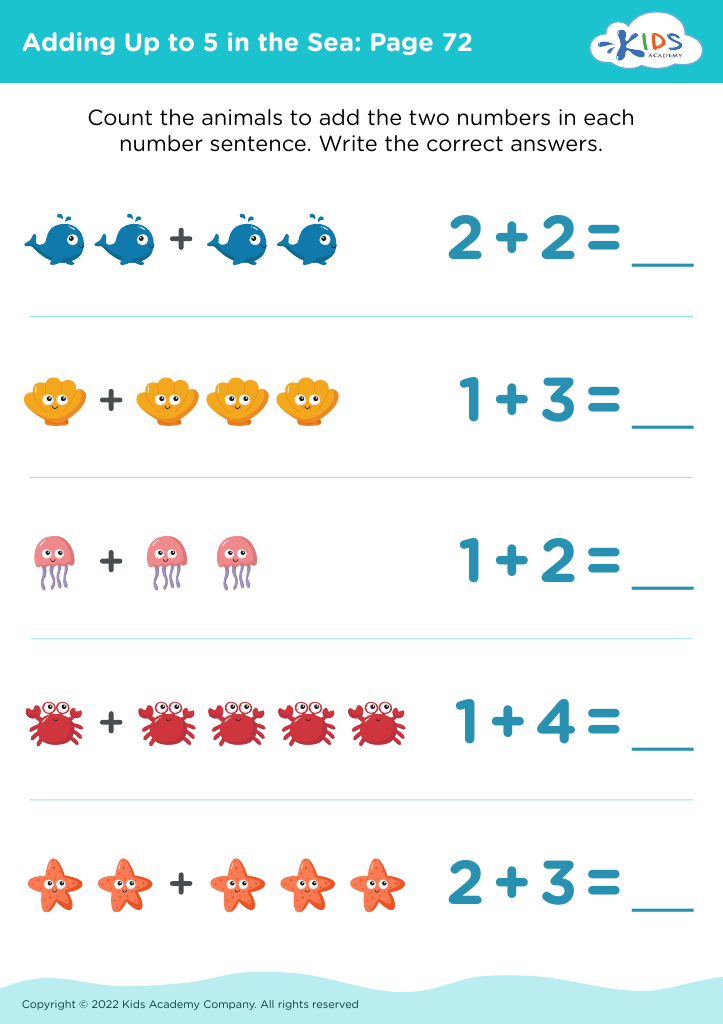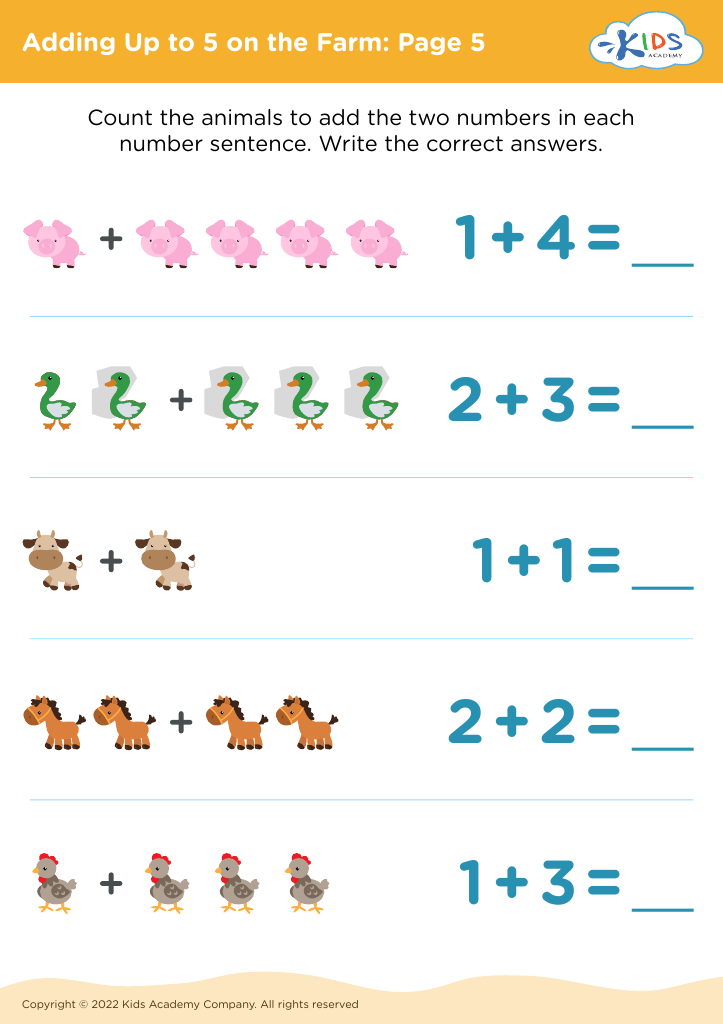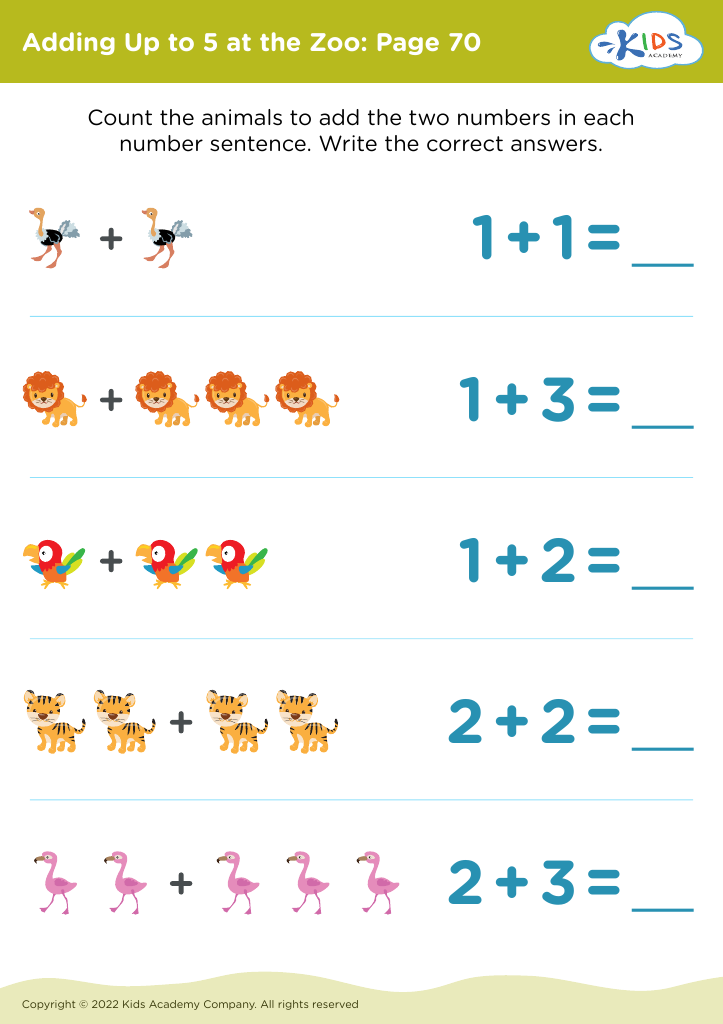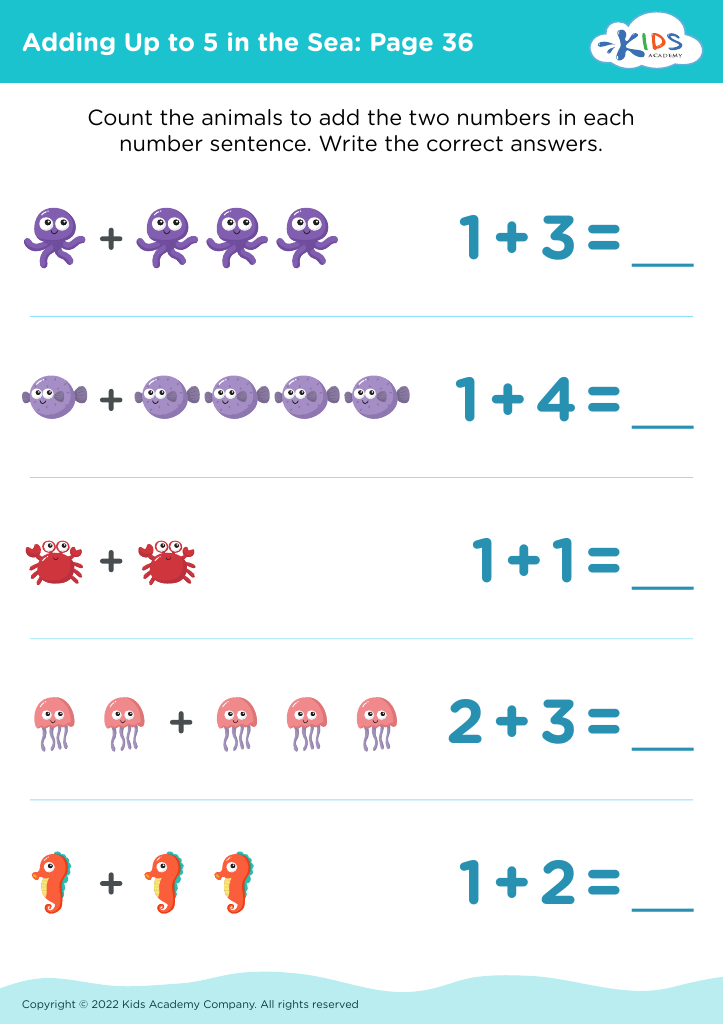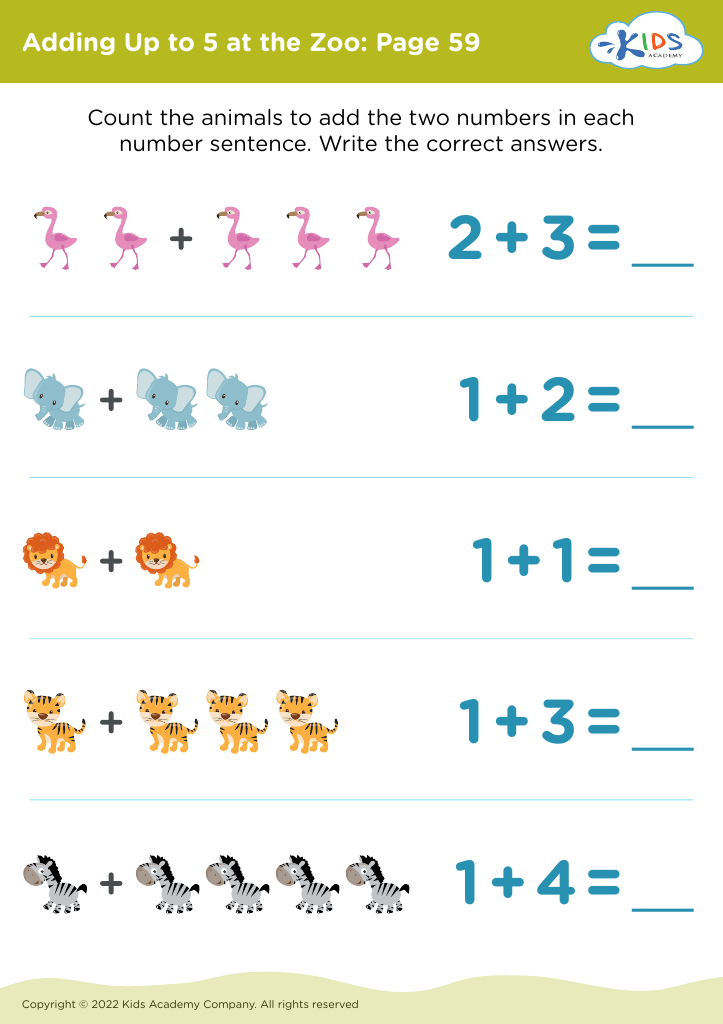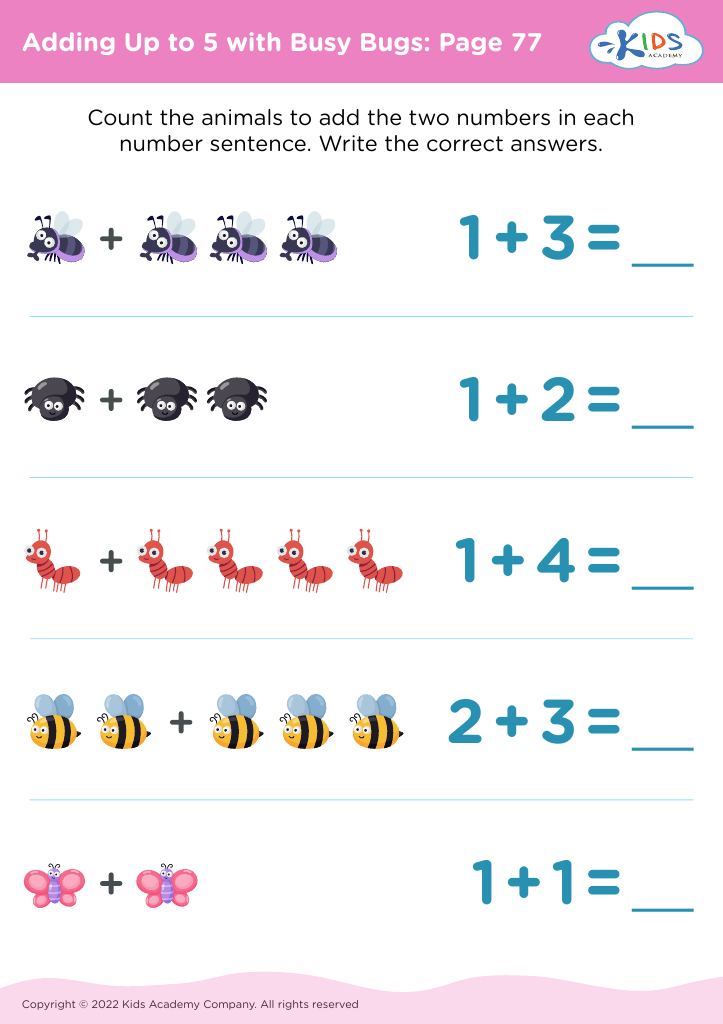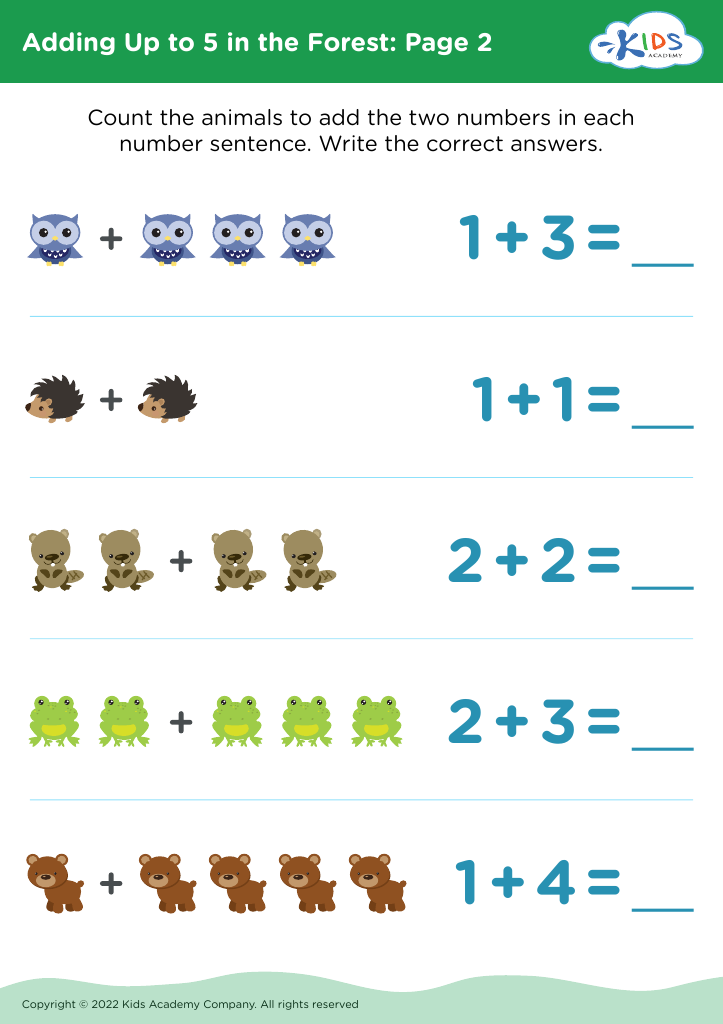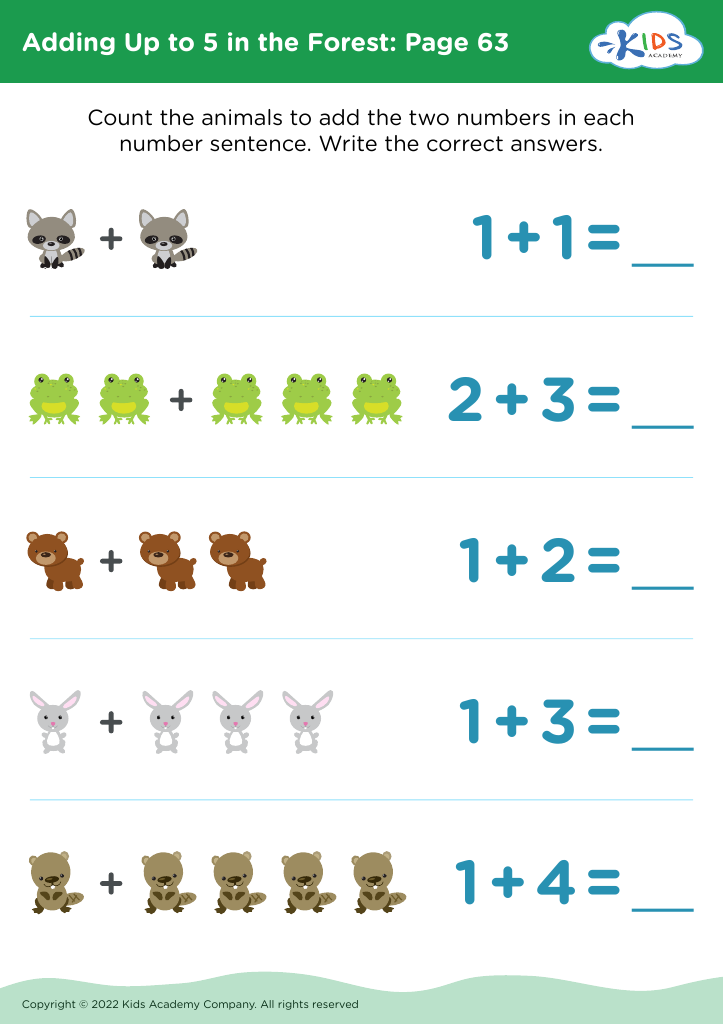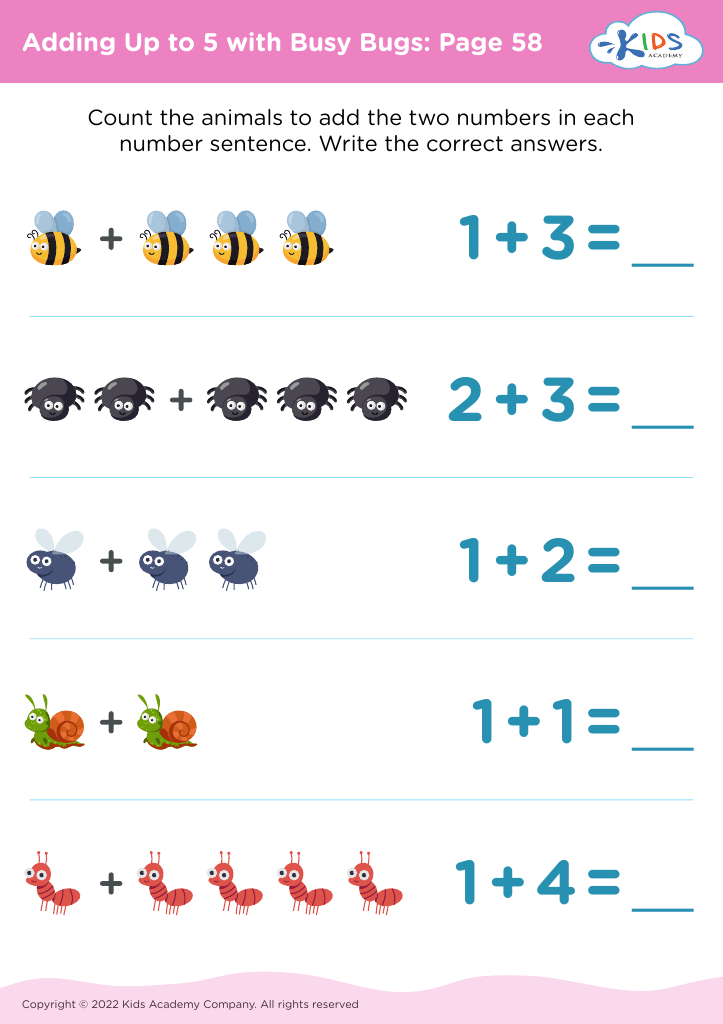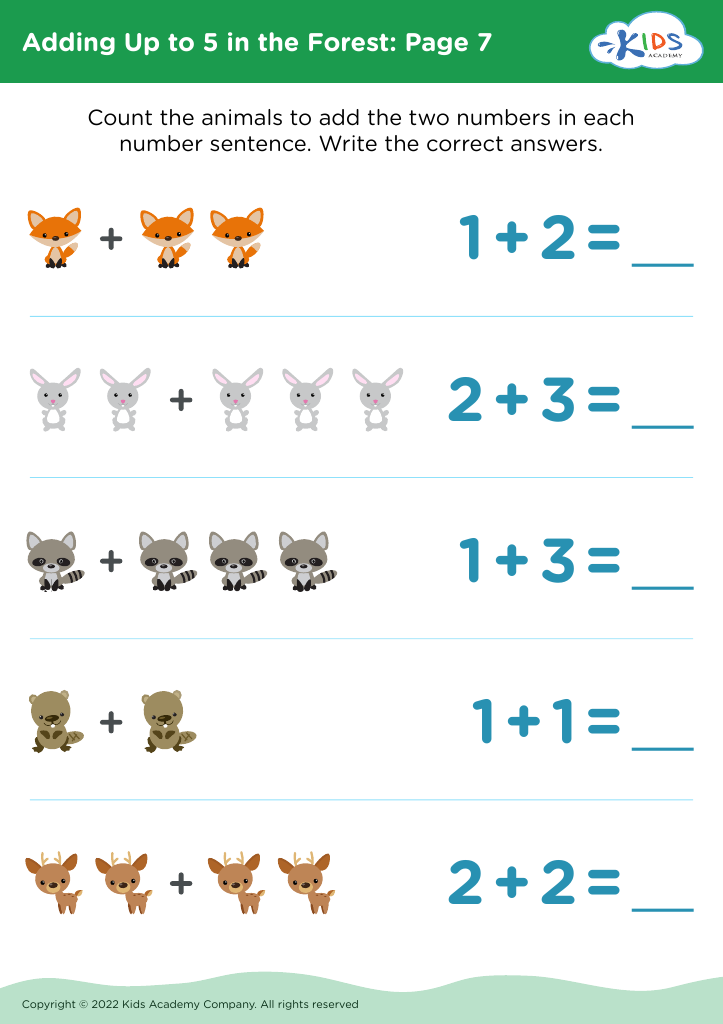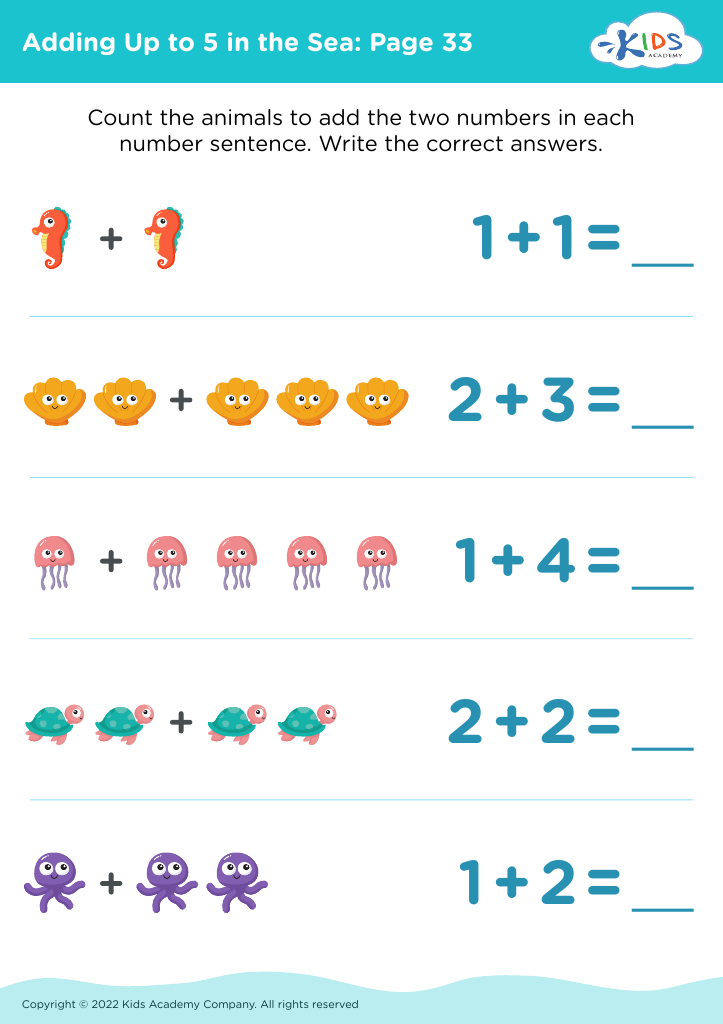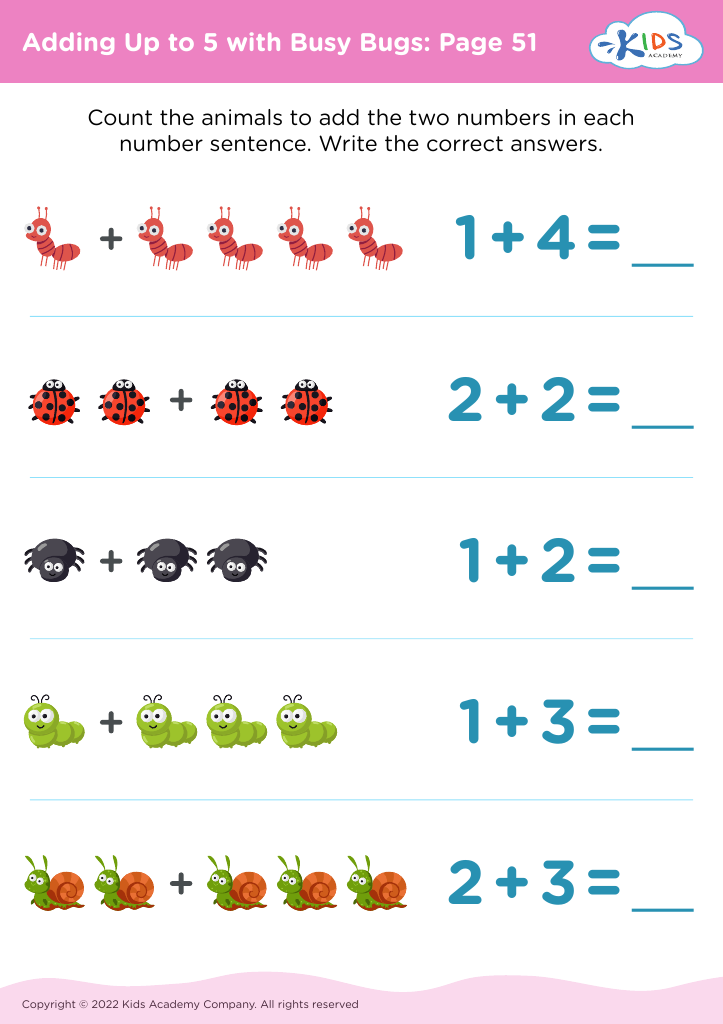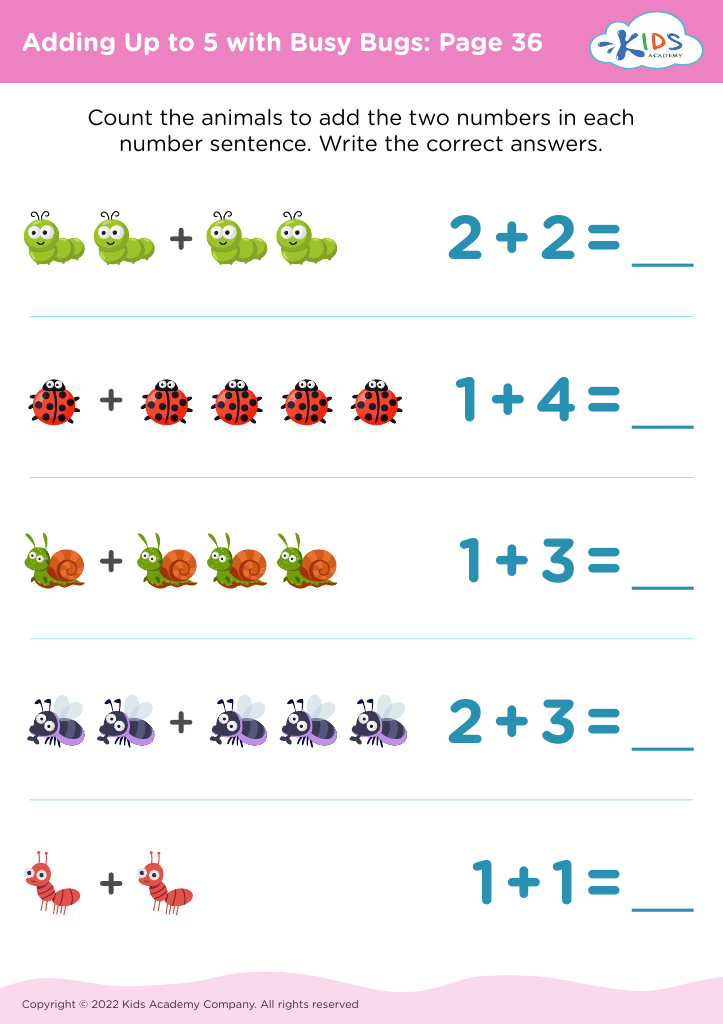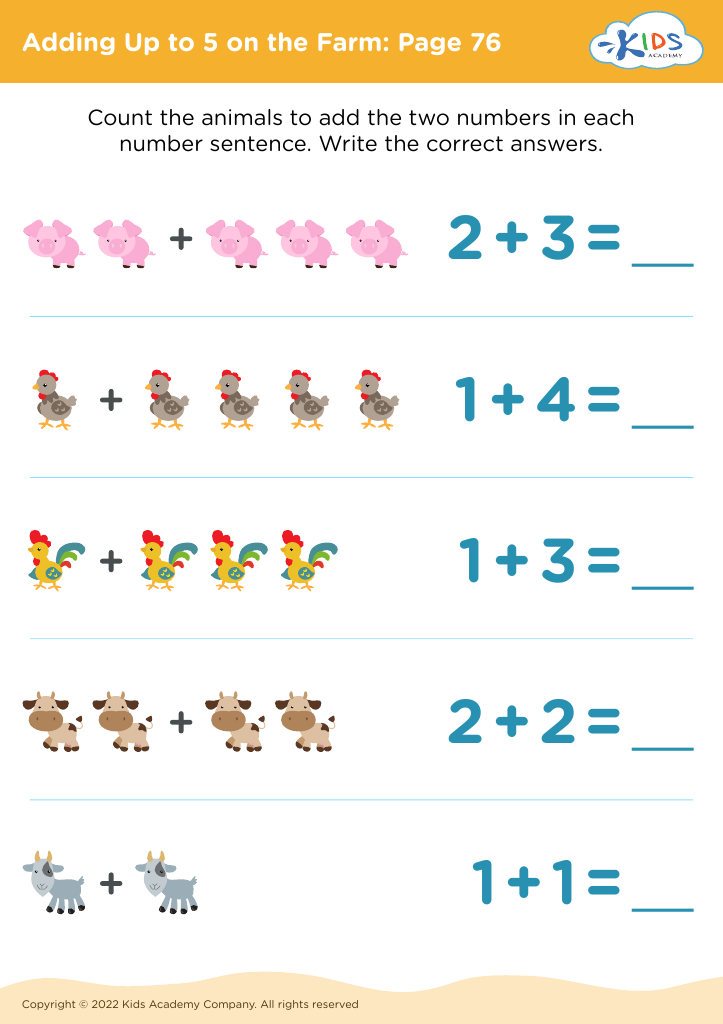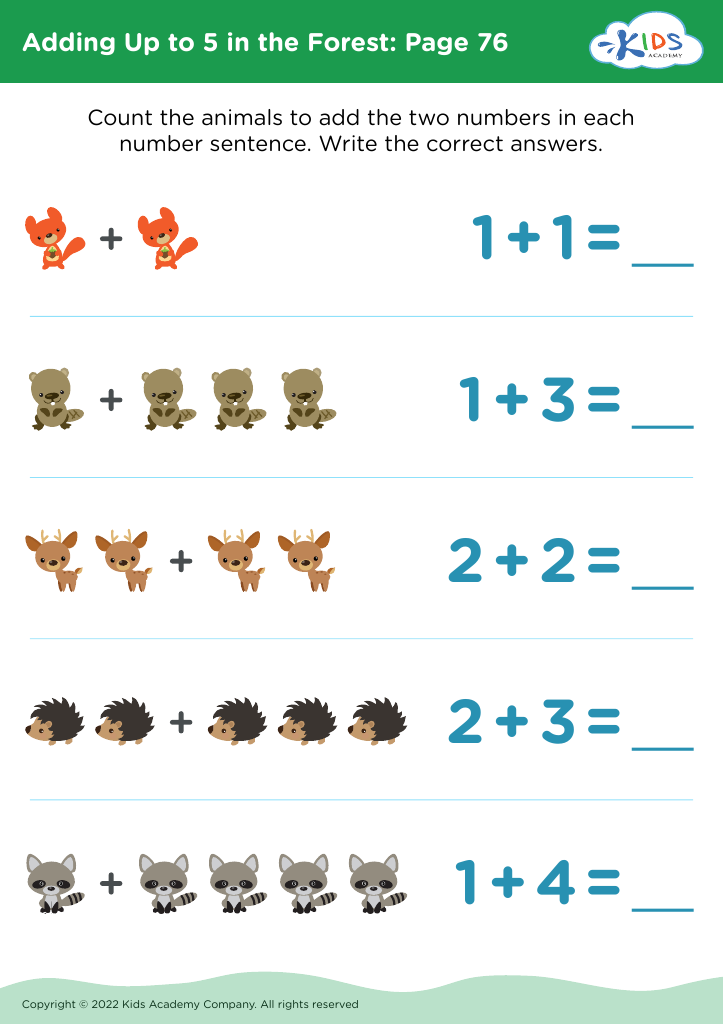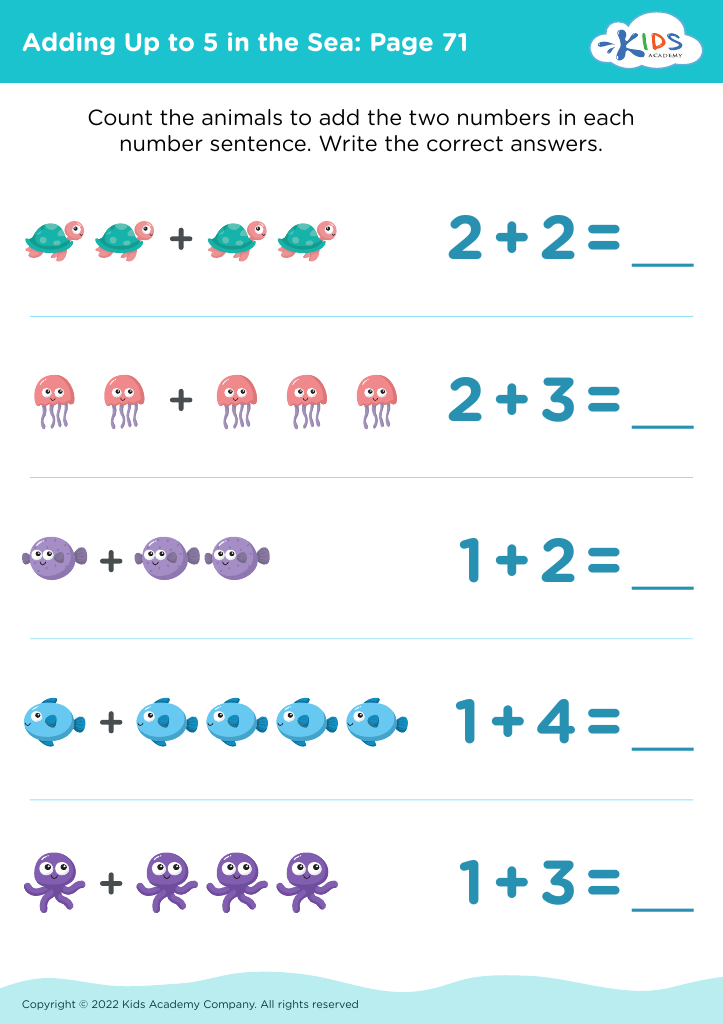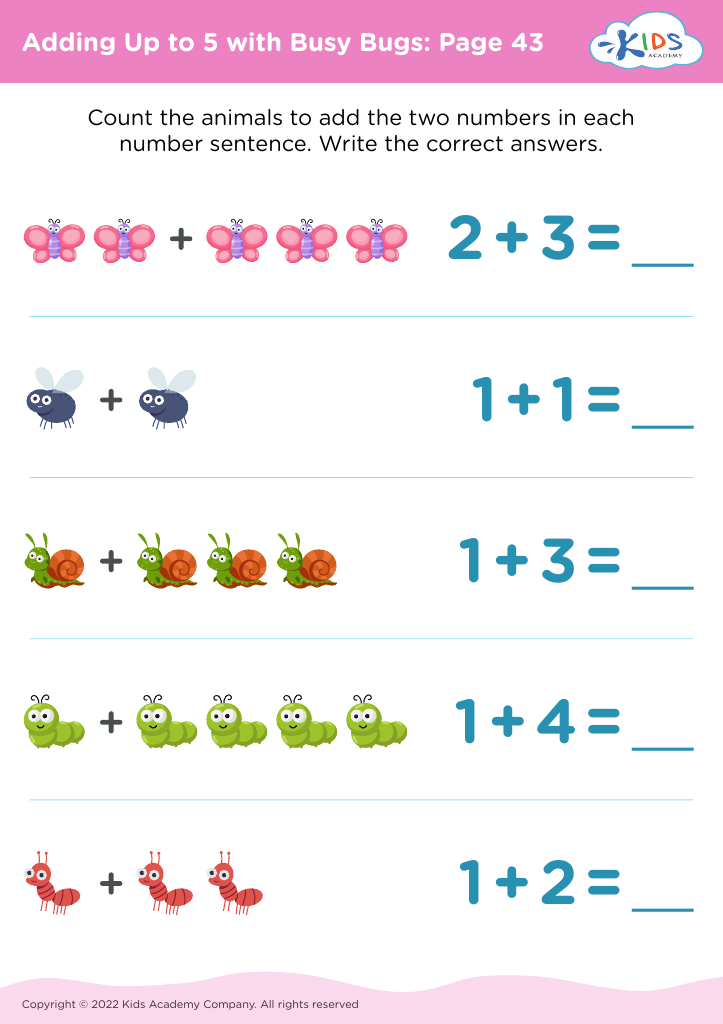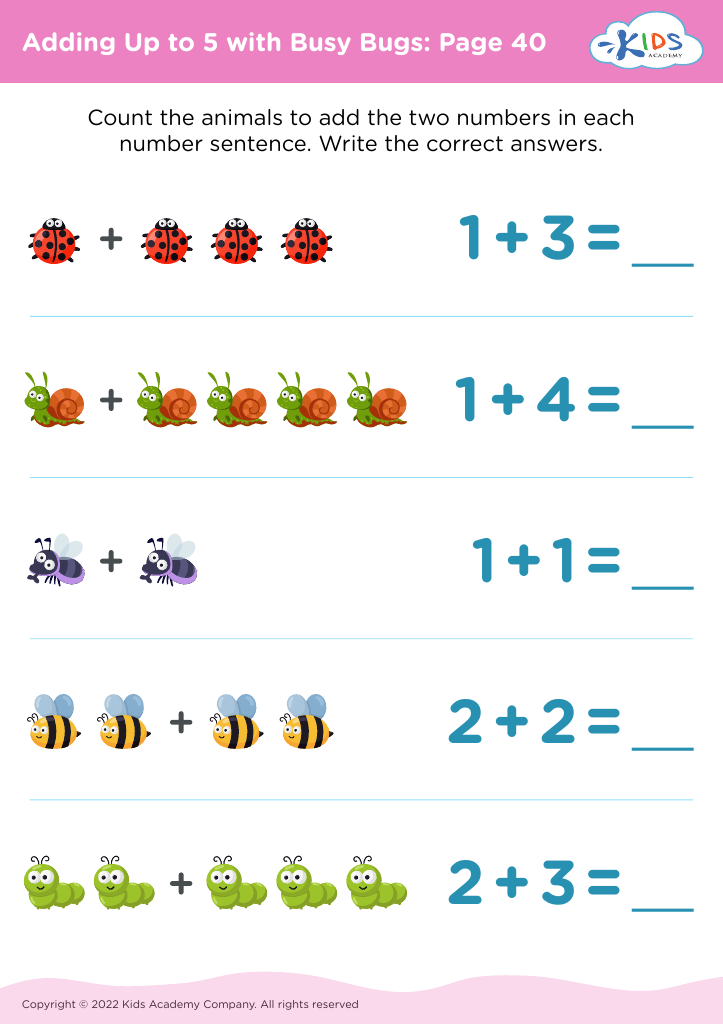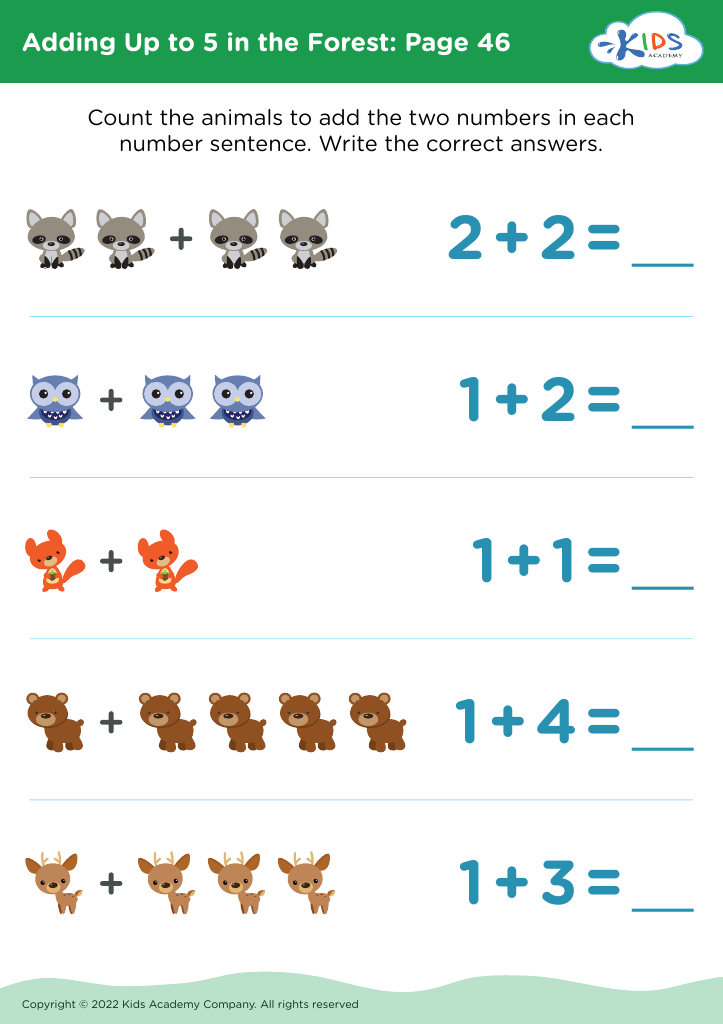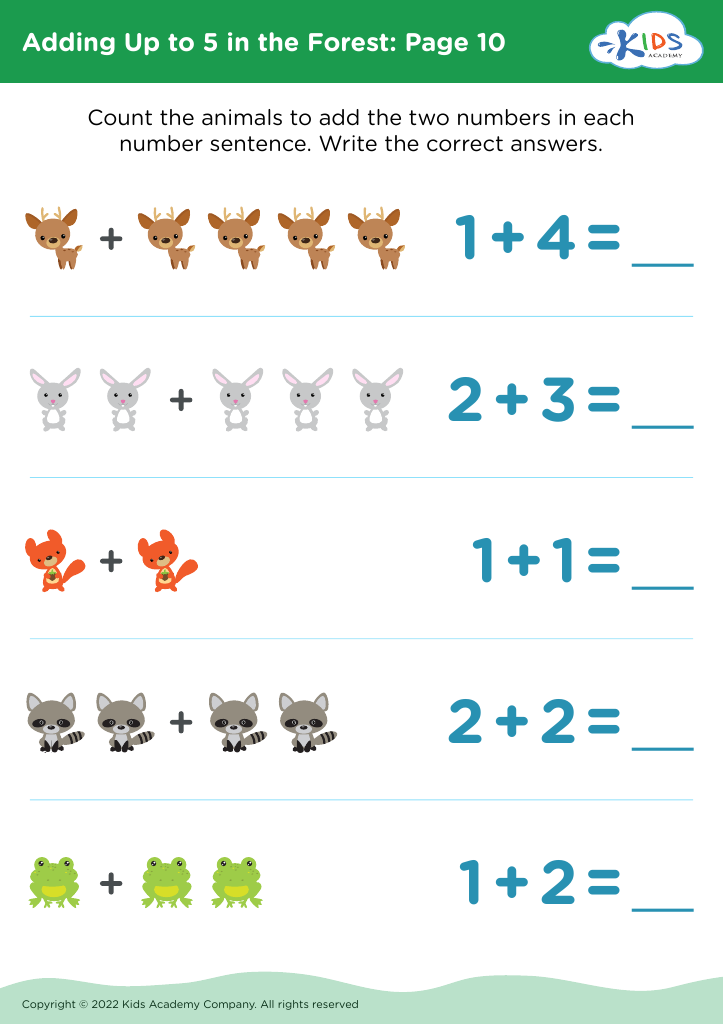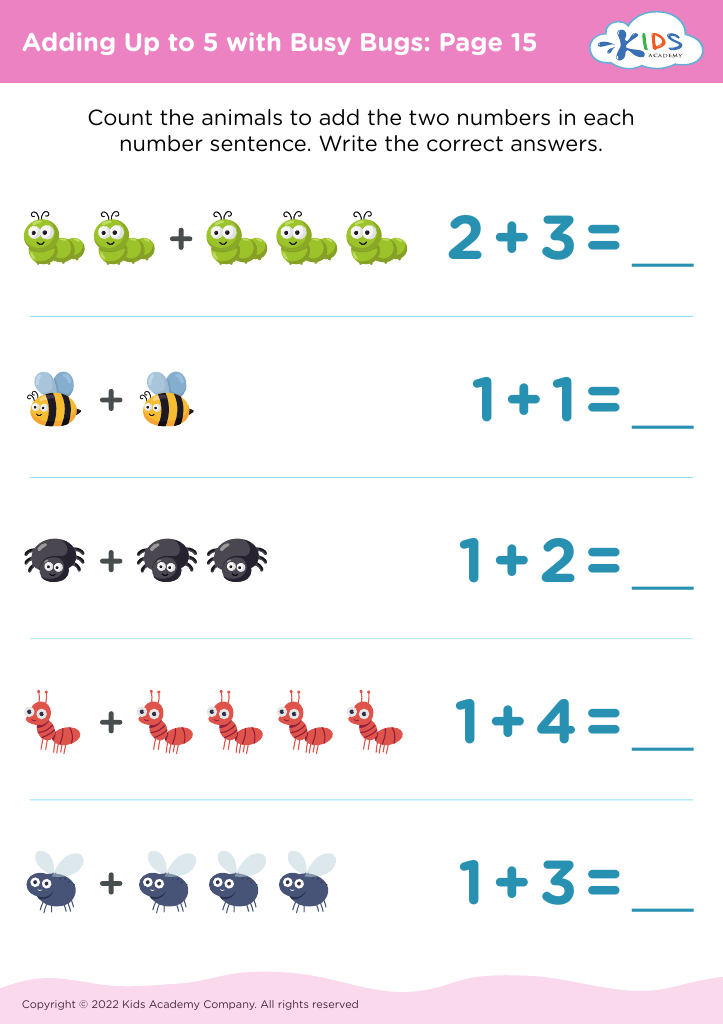Basic Math Skills Adding Up to 5 Worksheets for 5-Year-Olds
21 filtered results
-
From - To
Enhance your child's math abilities with our "Basic Math Skills Adding Up to 5 Worksheets" designed specifically for 5-year-olds. Bursting with fun and engaging activities, these worksheets help young learners practice and master addition problems up to the sum of 5. Each sheet features colorful illustrations and simple exercises tailored to kindergarten skills, ensuring your child builds a strong mathematical foundation. Foster early math confidence in an enjoyable way, making learning exciting and effective. Perfect for home or classroom use, these worksheets support crucial skills in number recognition, calculation, and logical thinking. Start your child's math journey today!
Fundamental early math skills, such as adding up to 5, are crucial for the cognitive and academic development of 5-year-olds. Parents and teachers should prioritize these skills because they form the building blocks for more complex mathematical concepts. Mastering basic addition at an early age introduces children to the concept of numbers, improving their understanding of quantity, sequencing, and logical thinking.
Moreover, early proficiency in math is linked to enhanced problem-solving skills, which are essential across various aspects of learning and daily life. By engaging with these basic addition problems, children also develop confidence and a positive attitude towards math, which is crucial for their future academic endeavors.
Additionally, early math skills are indicators of later academic success. Research shows that children who grasp basic math concepts early tend to perform better in school subjects and exhibit better critical thinking skills. Therefore, fostering these abilities early helps set a strong foundation for lifelong learning.
Furthermore, early math skills can also affect spatial awareness, hand-eye coordination, and even language development. Integrating enjoyable math activities into daily routines ignites natural curiosity and interest, making learning math a fun and integral part of childhood. Overall, investing time and effort in teaching basic addition skills benefits multiple developmental domains for young children.
